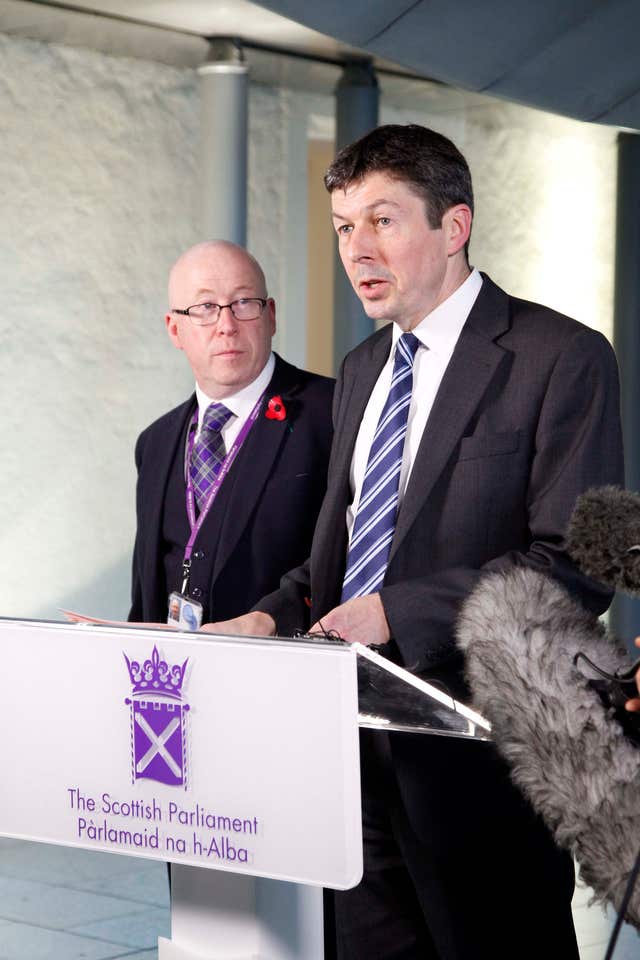
Plans to scrap the one-year time limit on raising sexual harassment complaints against MSPs have been put forward at the Scottish Parliament.
The proposal is one of a series of recommendations made by a working group set up in the wake of concerns about sexual harassment in Scottish politics.
Following a survey that found 30% of women and 6% of men had experienced sexual harassment or sexism while working at Holyrood, the group plans to introduce a new policy on sexual harassment.
The Scottish Parliament has today published the results of a confidential survey assessing the extent to which sexual harassment is present in #Holyrood. Find out more at: https://t.co/LIcg523ZLC pic.twitter.com/JdsKH9Wyil
— Scottish Parliament (@ScotParl) March 1, 2018
The policy sets out a zero-tolerance approach and outlines examples of sexist behaviour including using different language to describe attributes based on gender, such as saying a man is decisive but a woman aggressive.
It also gives instances of sexual harassment, including unwanted persistent attention to form an intimate relationship.
The new policy is now being consulted on before being finalised.
Other recommendations include having all formal complaints investigated independently of parliament and political parties.
For MSPs this would mean being investigated by the Ethical Standards Commissioner for Scotland and for other people at parliament an independent investigator would look into the complaint.
The group also recommends setting up an independent support service to provide advice as well as a route to submit a formal complaint, while a range of options will be available for informal resolution of complaints.

In a joint letter, the Scottish Parliament’s presiding officer Ken Macintosh and chief executive Sir Paul Grice said the plans aim to “achieve a real culture of respect at Holyrood”.
They continue: “Important as policies and procedures are, we each have a duty to ensure our own behaviour meets the standard expected and to challenge the behaviour of others that falls short.
“And, while we want to ensure that any complaint is dealt with sensitively and fairly, we remain focused on our goal of preventing sexual harassment happening in the first place.”


Comments: Our rules
We want our comments to be a lively and valuable part of our community - a place where readers can debate and engage with the most important local issues. The ability to comment on our stories is a privilege, not a right, however, and that privilege may be withdrawn if it is abused or misused.
Please report any comments that break our rules.
Read the rules here